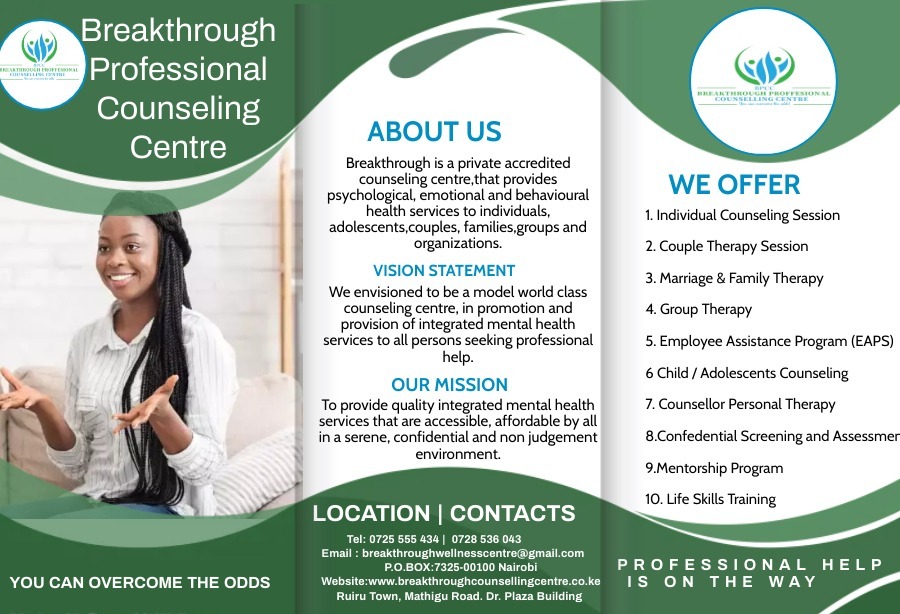Understanding Cognitive Behavioural Therapy (CBT)

Have you ever found yourself having thoughts that would not go away? It could have been thoughts of a conversation you had earlier. Or maybe you were worried about what someone thinks of you. Sometimes it may be a small mistake you made that left you feeling like a big failure. Most people get these thoughts at night as they try to relax and sleep or on a busy day as they try to focus.
If you experienced this or have in the past then you’re not alone. Many people experience these kinds of thoughts where they begin to overthink, assume the worst, or make a big deal out of a small matter. Without professional help, these patterns can feel impossible to get over, forcing you to always want to be alone because you feel the less you interact with others the less you have to think about.
This is what Cognitive Behavioural Therapy, commonly known as CBT, seeks to address. It helps victims of overbearing thoughts to break free and take back control of their thoughts and emotions. Therapists use CBT to support people with a variety of mental health concerns like anxiety, depression, trauma, stress, and more.
What Is Cognitive Behavioural Therapy (CBT)?
CBT is a form of therapy that focuses on how your thoughts, feelings, and behaviors are connected. CBT assumes that when you change the way you think, you can change the way you feel and act. It helps you to identify toxic thinking patterns and replace them with healthier ones.
How CBT Differs from Other Forms of Therapy
While other forms of therapy focus more on your past experiences or emotional insight, CBT is more concerned with your present thoughts and behaviors. It is practical and actively engages both the therapist and the client in identifying problems and working toward solutions. It is effective for people who want practical strategies they can start using right away.
Types of CBT
There are several variations of CBT, each focusing on specific issues:
- Traditional CBT – Focuses on changing negative thought patterns and behaviors.
- Dialectical Behaviour Therapy (DBT) – Integrates mindfulness and emotional regulation, often used for borderline personality disorder and emotional instability.
- Acceptance and Commitment Therapy (ACT) – Encourages accepting thoughts and feelings rather than fighting them, while committing to personal values.
- Trauma-Focused CBT – Designed to help individuals, especially children and adolescents, cope with the aftermath of trauma.
Techniques Used in CBT and Why They Work
CBT uses a wide range of techniques that have been tested and refined over time:
- Cognitive Restructuring: Involves identifying and challenging irrational or unrealistic thoughts.
- Behavioral Activation: Encourages the client to engage in activities that bring pleasure or achievement.
- Exposure Therapy: It systematically confronts fears in a safe environment to reduce anxiety over time.
- Journaling: Writing down thoughts to recognize patterns and triggers.
- Problem-Solving Skills: Learning practical ways to manage stressful situations.
These techniques break the persistent repetition of negative thoughts and reactions, giving you space to choose a healthier response.
Who Is a CBT Therapist?
A CBT therapist is a licensed mental health professional with special training in CBT techniques and principles. This could be a psychologist or counseling therapist who uses CBT to guide you through structured sessions to identify negative thought patterns and help you develop new coping skills.
What to Expect in Your First CBT Session
As mentioned before, CBT is a systematic process of transformation. Your first CBT session will be an introduction where your therapist will ask questions to understand your concerns, goals, and background. You might discuss what you’re struggling with, how it affects your daily life, and what you hope to gain from therapy. The first session is mostly about building trust and comfort with your therapist. CBT is a collaborative process that moves at your pace.
When Might You or a Loved One Need CBT?
Cognitive Behavioural Therapy (CBT) is not only for people in crisis. Anyone who wants to better understand themselves, manage their emotions, and improve their quality of life can also do CBT.
CBT can be highly effective in treating mental health challenges like:
- Anxiety Disorders: Constant worry, panic attacks, fear of social situations, obsessive thoughts, irrational fears, etc.
- Depression: Feeling hopeless, disconnected, or emotionally numb as a result of thought patterns that fuel depressive feelings.
- Low Self-Esteem: Feeling like you’re not good enough or constantly questioning your value.
- Stress and Burnout: Managing stress and fatigue more effectively and finding mental clarity even in times of crisis.
- Anger Management: CBT can help you recognize your triggers so you can respond in healthier, more constructive ways.
- Relationship Issues: Struggles with communication, trust issues, or recurring conflict eroding intimacy and peace.
- Addiction and Substance Use: CBT is useful in understanding the triggers behind addictive behaviors and reshaping thought patterns around cravings.
Signs You Might Need CBT
You or a loved one may benefit from CBT if you notice any of the following:
- Persistent negative thoughts or beliefs about yourself, others, or the future
- Difficulty managing daily stress or feeling constantly overwhelmed
- Avoidance of people, places, or situations due to fear or anxiety
- Emotional outbursts, irritability, or mood swings that strain relationships
- Trouble sleeping, concentrating, or enjoying things that once brought joy
- A desire to improve your mental health but feeling unsure where to start
Note: It’s important to remember that you don’t have to wait until things get unbearable to seek help. CBT should be something you do regularly for long-term growth.
What to Consider When Seeking CBT
When looking for a CBT therapist, consider the following:
- Credentials: Ensure the therapist is licensed and trained in CBT.
- Experience: Look for who has handled similar cases before.
- Style and Approach: Choose someone whose communication style feels comfortable.
- Accessibility: Decide whether in-person or online sessions work best for you.
- Affordability: Ask about session fees and the availability of packages or sliding scale options.
How to Identify the Right CBT Therapist
It’s okay to speak with more than one therapist before deciding who feels like the best fit. The right CBT therapist should:
- Make you feel respected and safe.
- Clearly explain how CBT works.
- Encourage collaboration and active participation.
- Provide structure while remaining flexible to your needs.
Pros and Cons of CBT
Like any therapeutic approach, Cognitive Behavioural Therapy (CBT) has its strengths and weaknesses. Understanding both sides can help you make an informed decision about whether it’s the right fit for you or your loved one.
Pros of CBT
- Practical and Results-Oriented, focused on helping you solve problems in real-time.
- Backed by Extensive Research with numerous studies proving its effectiveness. in
- Short-Term with Long-Term Benefits as the tools and skills you gain will serve you for a lifetime.
- Builds Lifelong Coping Skills as CBT aims to empower you to navigate future challenges on your own.
- Flexible in Delivery; one-on-one sessions, group therapy, online sessions, and even self-help workbooks.
Cons of CBT
-
- Requires Active Participation and Homework which can feel like added pressure when seeking treatment.
- CBT feels too Structured for those who prefer to explore their thoughts freely
- Not Ideal for All Personality Types or
- Focus on the Present Can Overlook the Past
Despite its limitations, CBT continues to be one of the most widely used and effective forms of therapy today. It’s ideal for those who are ready to take action, learn new skills, and make real changes in their daily lives. It may not be the best fit for everyone, but for many, CBT is a powerful step toward clarity, resilience, and emotional freedom.
If you’re feeling stuck, overwhelmed, or disconnected from the life you want to live, CBT can help you take control and move forward. Healing starts with one conversation. And we are ready to support you every step of the way.





